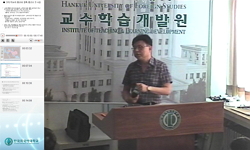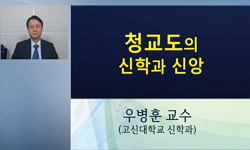This paper is dealing with the territorial Reformation of Strasbourg, the southern city of Germany in the sixteenth century. The political structure of Strasbourg was close to the ideal polity of Plato. The top political organization of the city was t...
http://chineseinput.net/에서 pinyin(병음)방식으로 중국어를 변환할 수 있습니다.
변환된 중국어를 복사하여 사용하시면 됩니다.
- 中文 을 입력하시려면 zhongwen을 입력하시고 space를누르시면됩니다.
- 北京 을 입력하시려면 beijing을 입력하시고 space를 누르시면 됩니다.
https://www.riss.kr/link?id=A106180113
-
저자
황대우 (고신대학교)
- 발행기관
- 학술지명
- 권호사항
-
발행연도
2019
-
작성언어
Korean
-
주제어
Strasbourg ; Reformation ; City Council ; Evangelical Preaching ; Word of God ; Bucer ; Zell ; 스트라스부르 ; 종교개혁 ; 시의회 ; 복음 설교 ; 하나님의 말씀 ; 부써 ; 첼
-
등재정보
KCI등재후보
-
자료형태
학술저널
-
수록면
327-361(35쪽)
-
KCI 피인용횟수
0
- DOI식별코드
- 제공처
-
0
상세조회 -
0
다운로드
부가정보
다국어 초록 (Multilingual Abstract)
The first Reformer of Strasbourg was Mattäus Zell. He was strongly influenced by the works of Luther the Reformer of Wittenberg in order to preach evangelically. In 1523, three Reformers arrived in Strasbourg. They were Wolfgang Capito, Caspar Hedio, and Martin Bucer. Unlike the first two, the last was not invited. Bucer quickly increased his influence. Within a short time, he became the leader of the Strasbourg's preachers.
The attitude of the preachers for the Reformation of Strasbourg always were active and positive while that of the city councilors usually were passive and negative. For the Reformers it was a divine mission to preach purely the Word of God. The councilors thought that the stabilization of the city was more important than the evangelical preaching. The conflicts between Strasbourg's preachers and councilors were results of those different attitudes for the Reformation. In spite of passive attitude of the city councilors, Strasbourg finally became the reformed city, so that she abolished the Mass of the Roman Catholic Church, 21 February 1529.
The primary cause of the urban Reformation was the evangelical preaching of the Reformers. The citizens strongly supported them because of their enthusiasm of the pure evangelism. Consequently, the City Council commanded the preachers to preach the Word of God only. In fact, the enthusiastic preaching of the Reformers had gradually removed a lot of the socio-political difficulties and obstacles to the urban Reformation. In short, the Word of God was the motive power of the Reformation of Strasbourg in 1520s.
This paper is dealing with the territorial Reformation of Strasbourg, the southern city of Germany in the sixteenth century. The political structure of Strasbourg was close to the ideal polity of Plato. The top political organization of the city was the small Council, in general called the City Council. The urban Reformation could not have happened without the mutual cooperation between Church and Government. It was not easy, because there were much disagreement of opinion on the urban Reformation between the Reformers and the members of the City Council.
The first Reformer of Strasbourg was Mattäus Zell. He was strongly influenced by the works of Luther the Reformer of Wittenberg in order to preach evangelically. In 1523, three Reformers arrived in Strasbourg. They were Wolfgang Capito, Caspar Hedio, and Martin Bucer. Unlike the first two, the last was not invited. Bucer quickly increased his influence. Within a short time, he became the leader of the Strasbourg's preachers.
The attitude of the preachers for the Reformation of Strasbourg always were active and positive while that of the city councilors usually were passive and negative. For the Reformers it was a divine mission to preach purely the Word of God. The councilors thought that the stabilization of the city was more important than the evangelical preaching. The conflicts between Strasbourg's preachers and councilors were results of those different attitudes for the Reformation. In spite of passive attitude of the city councilors, Strasbourg finally became the reformed city, so that she abolished the Mass of the Roman Catholic Church, 21 February 1529.
The primary cause of the urban Reformation was the evangelical preaching of the Reformers. The citizens strongly supported them because of their enthusiasm of the pure evangelism. Consequently, the City Council commanded the preachers to preach the Word of God only. In fact, the enthusiastic preaching of the Reformers had gradually removed a lot of the socio-political difficulties and obstacles to the urban Reformation. In short, the Word of God was the motive power of the Reformation of Strasbourg in 1520s.
국문 초록 (Abstract)
스트라스부르의 첫 종교개혁자는 마테 첼이었다. 그는 복음적인 설교를 하는데 있어서 비텐베르크 종교개혁자 루터의 영향을 받았다. 1523년에 3명의 종교개혁자가 스트라스부르에 들어왔는데 그들 중 부써는 초대받지 못했으나 빠르게 영향력을 행사하면서 단 기간에 스트라스부르 설교자들의 리더가 되었다.
종교개혁자들은 개혁이 하나님의 말씀에 순종하는 신앙적 사명이라고 생각했던 반면에 시의회는 말씀보다 도시의 안녕을 더 중요하게 생각했다. 시의회는 도시가 무질서한 혼란에 빠지지 않도록 최선을 다해야 했기 때문에 때론 종교개혁자들과 대립하곤 했다. 비록 이런 갈등과 반목은 불가피한 일이었지만 스트라스부르는 결국 1529년 2월 21일에 미사를 폐지하기로 결정함으로써 공적으로 종교개혁을 수용했다.
스트라스부르 종교개혁의 성공을 이끈 주요 원인은 설교자들의 복음 설교였다. 스트라스부르 설교자들은 순수한 복음 설교를 통해 시민들의 지지지를 받게 되었다. 그 결과 시의회도 순수한 복음 설교 외에 다른 것을 설교하지 못하도록 금지하는 명령을 내릴 수밖에 없었다. 이런 점에서 순수한 복음 설교에 대한 종교개혁자들의 믿음과 열정이 도시의 모든 정치적, 사회적 장애물을 극복하도록 만들었다. 한 마디로, 1520년대 스트라스부르 종교개혁은 하나님의 말씀이 승리한 사건이었다.
본 논문은 1520년대 독일 남부도시 스트라스부르의 종교개혁을 다루고 있다. 16세기 스트라스부르의 정치 구조는 플라톤의 이상적인 정치구조에 가까웠다. 이 도시의 최고 정치 기구는 시의...
본 논문은 1520년대 독일 남부도시 스트라스부르의 종교개혁을 다루고 있다. 16세기 스트라스부르의 정치 구조는 플라톤의 이상적인 정치구조에 가까웠다. 이 도시의 최고 정치 기구는 시의회라 불리는 소의회였다. 교회와 정부의 협력 없이는 스트라스부르의 종교개혁은 불가능했다. 하지만 그 둘 사이의 갈등은 불가피했다. 왜냐하면 도시개혁을 위해 교회의 대표자들인 종교개혁자들은 언제나 적극적이고 능동적이었던 반면에 시의회는 거의 항상 소극적이고 부정적인 자세였기 때문이다.
스트라스부르의 첫 종교개혁자는 마테 첼이었다. 그는 복음적인 설교를 하는데 있어서 비텐베르크 종교개혁자 루터의 영향을 받았다. 1523년에 3명의 종교개혁자가 스트라스부르에 들어왔는데 그들 중 부써는 초대받지 못했으나 빠르게 영향력을 행사하면서 단 기간에 스트라스부르 설교자들의 리더가 되었다.
종교개혁자들은 개혁이 하나님의 말씀에 순종하는 신앙적 사명이라고 생각했던 반면에 시의회는 말씀보다 도시의 안녕을 더 중요하게 생각했다. 시의회는 도시가 무질서한 혼란에 빠지지 않도록 최선을 다해야 했기 때문에 때론 종교개혁자들과 대립하곤 했다. 비록 이런 갈등과 반목은 불가피한 일이었지만 스트라스부르는 결국 1529년 2월 21일에 미사를 폐지하기로 결정함으로써 공적으로 종교개혁을 수용했다.
스트라스부르 종교개혁의 성공을 이끈 주요 원인은 설교자들의 복음 설교였다. 스트라스부르 설교자들은 순수한 복음 설교를 통해 시민들의 지지지를 받게 되었다. 그 결과 시의회도 순수한 복음 설교 외에 다른 것을 설교하지 못하도록 금지하는 명령을 내릴 수밖에 없었다. 이런 점에서 순수한 복음 설교에 대한 종교개혁자들의 믿음과 열정이 도시의 모든 정치적, 사회적 장애물을 극복하도록 만들었다. 한 마디로, 1520년대 스트라스부르 종교개혁은 하나님의 말씀이 승리한 사건이었다.
참고문헌 (Reference)
1 최윤배, "한국에서 마르틴 부처(Martin Bucer)에대한 연구사" 한국조직신학회 (51) : 159-199, 2018
2 Stupperich, Robert, "Zur auswärtigen Wirksamkeit 1528-1533" Gerd Mohn 1960
3 Baum, Johann Wilhelm, "Straßburgs Reformatoren nach ihrem handschriftlichen Briefschatze ihren gedruckten Schriften und anderen gleichzeitigen Quellen" Verlag von R. L. Friderichs 1860
4 Lienhard, Marc, "Straßburg und die Reformation" Morstadt 1981
5 Stupperich, Robert, "Schriften der Jahre 1524-1528" Gerd Mohn 1960
6 Thomas A. Brady, "Ruling Class, Regime and Reformation at Strasbourg 1520-1555" E. J. Brill 1978
7 Greschat, Martin, "Martin Bucer: A Reformer and His Times" Westmister John Knox 2004
8 Poll, Gerrit Jan van de, "Martin Bucer's Liturgical Ideas: The Strasburg Reformer and His Connection with the Liturgies of the Sixteenth Century" Van Gorcum 1954
9 Eells, Hastings, "Martin Bucer" Yale University 1931
10 Selderhuis, Herman J, "Marriage and Divorce in the Thought of Martin Bucer" Thomas Jefferson University Press 1998
1 최윤배, "한국에서 마르틴 부처(Martin Bucer)에대한 연구사" 한국조직신학회 (51) : 159-199, 2018
2 Stupperich, Robert, "Zur auswärtigen Wirksamkeit 1528-1533" Gerd Mohn 1960
3 Baum, Johann Wilhelm, "Straßburgs Reformatoren nach ihrem handschriftlichen Briefschatze ihren gedruckten Schriften und anderen gleichzeitigen Quellen" Verlag von R. L. Friderichs 1860
4 Lienhard, Marc, "Straßburg und die Reformation" Morstadt 1981
5 Stupperich, Robert, "Schriften der Jahre 1524-1528" Gerd Mohn 1960
6 Thomas A. Brady, "Ruling Class, Regime and Reformation at Strasbourg 1520-1555" E. J. Brill 1978
7 Greschat, Martin, "Martin Bucer: A Reformer and His Times" Westmister John Knox 2004
8 Poll, Gerrit Jan van de, "Martin Bucer's Liturgical Ideas: The Strasburg Reformer and His Connection with the Liturgies of the Sixteenth Century" Van Gorcum 1954
9 Eells, Hastings, "Martin Bucer" Yale University 1931
10 Selderhuis, Herman J, "Marriage and Divorce in the Thought of Martin Bucer" Thomas Jefferson University Press 1998
11 Baum, Adolf, "Magistrat und Reformation in Strassburg bis 1529" Heitz & Mündel 1887
12 McKee, Elsie Anne, "Katharina Schütz Zell. 2 Vols" Brill 1999
13 Knepper, Joseph, "Jakob Wimpfeling (1450-1528)" Herdersche Verlagshandlung 1902
14 Stupperich, Robert, "Frühschriften 1520-1524" Gerd Mohn 1960
15 Adam, Johann, "Evangelische Kirchengeschichte der Stadt Strassburg bis zur französichen Revolution" Bruck und Verlag von J. H. Ed. Heitz 1922
16 Allen, P. S, "Erasmi Roterodami II. 1514-1517" Typographeus Clarendonianus 1910
17 Kohls, Ernst-Wilhelm, "Die Schule bei Martin Bucer in ihrem Verhältnis zu Kirche und Obrigkeit" Quelle & Meyer 1963
18 Herminjard, Aimé Louis, "Correspondance des réformateurs dans les pays de langue française I" Imprimerie Ramboz et Schuchardt 1866
19 Zell, Katharina Schütz, "Church Mother: The Writings of a Protestant Reformer in Sixteenth-Century Germany" Brill 2006
동일학술지(권/호) 다른 논문
-
- 개혁주의생명신학회
- 박응규
- 2019
- KCI등재후보
-
- 개혁주의생명신학회
- 이병일
- 2019
- KCI등재후보
-
- 개혁주의생명신학회
- 김남일
- 2019
- KCI등재후보
-
개혁주의생명신학의 관점에서 본 아프리카 독립교회에 관한 선교학적 제언
- 개혁주의생명신학회
- 김필균
- 2019
- KCI등재후보
분석정보
인용정보 인용지수 설명보기
학술지 이력
| 연월일 | 이력구분 | 이력상세 | 등재구분 |
|---|---|---|---|
| 2023 | 평가예정 | 재인증평가 신청대상 (재인증) | |
| 2020-01-01 | 평가 | 등재학술지 선정 (재인증) |  |
| 2018-01-01 | 평가 | 등재후보학술지 선정 (신규평가) |  |





 KCI
KCI KISS
KISS




